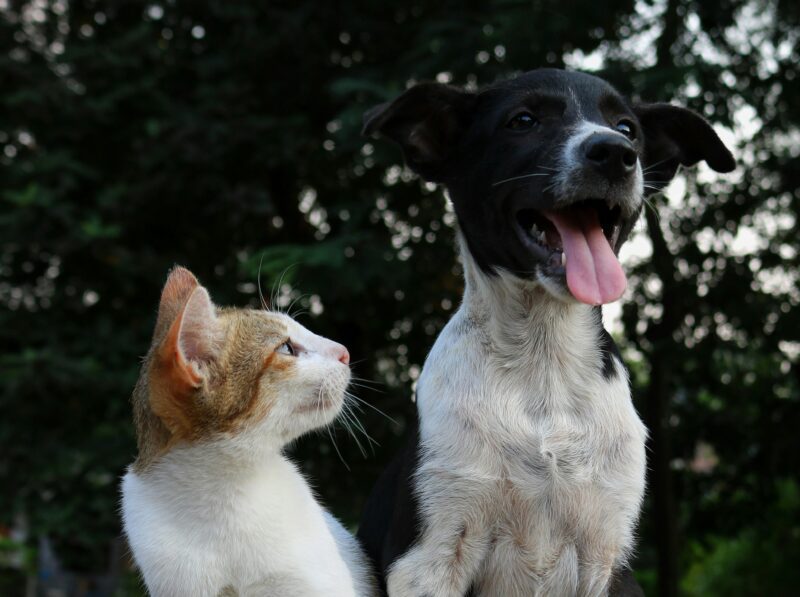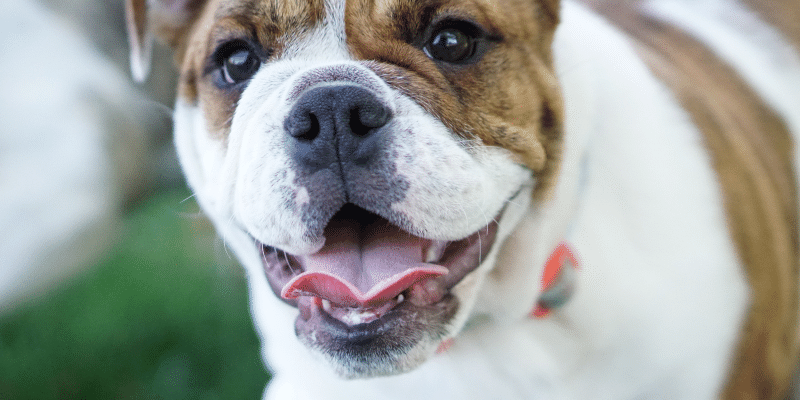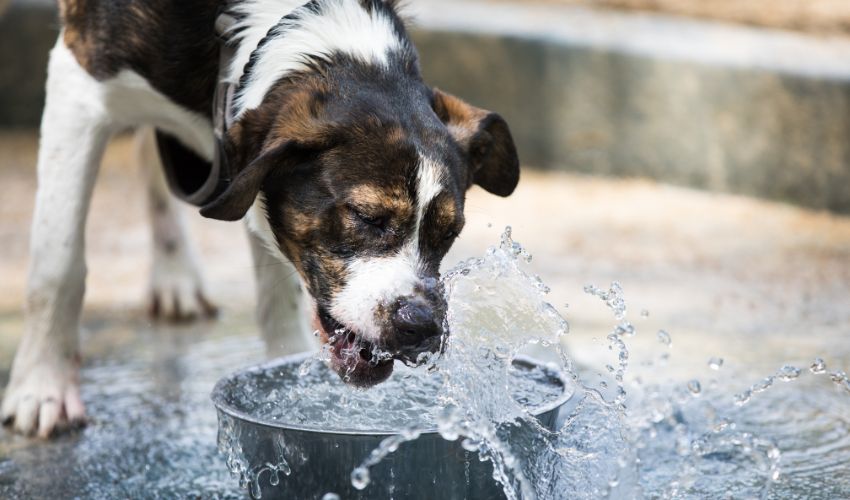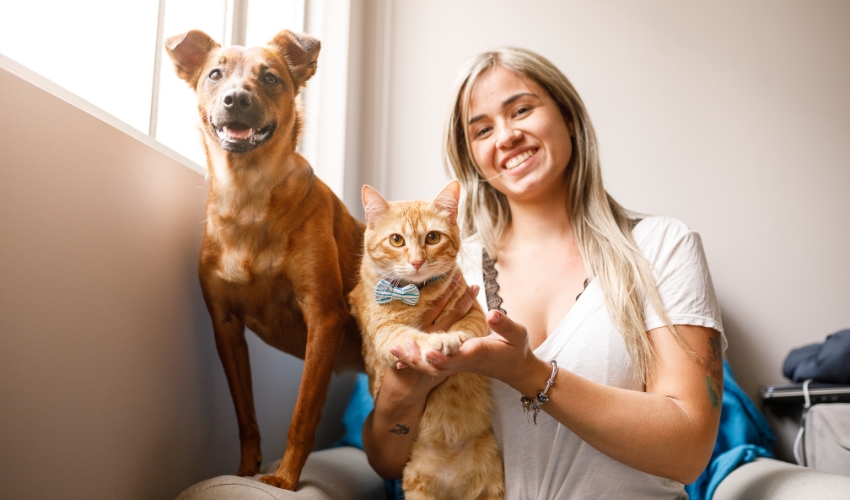Digestive disorders in cats and dogs can be challenging for both pet owners and their beloved companions. Understanding the causes, recognizing symptoms, and implementing effective management strategies are essential for maintaining the gastrointestinal health of our furry friends. In this comprehensive guide, we will delve into the intricacies of digestive disorders in cats and dogs, exploring common issues, preventive measures, and practical solutions to ensure optimal digestive well-being.
Understanding Digestive Disorders
Common Digestive Disorders in Cats and Dogs
Gastroenteritis: Gastroenteritis is inflammation of the stomach and intestines, often resulting from infections, dietary indiscretion, or changes in diet. Common symptoms include vomiting, diarrhea, and abdominal discomfort.
Inflammatory Bowel Disease (IBD): IBD is a chronic condition characterized by inflammation of the gastrointestinal tract. Cats and dogs with IBD may experience vomiting, diarrhea, weight loss, and changes in appetite.
Pancreatitis: Pancreatitis is inflammation of the pancreas, and it can lead to digestive enzyme imbalances. Symptoms include abdominal pain, vomiting, diarrhea, and reduced appetite.
Constipation: Constipation is a common digestive issue, particularly in cats. It can result from dietary factors, dehydration, or underlying medical conditions, leading to difficulty in passing stools.
Colitis: Colitis is inflammation of the colon, causing symptoms such as diarrhea, straining during bowel movements, and increased frequency of defecation.
Gastrointestinal Parasites: Worms and other parasites can affect the digestive system of cats and dogs. Common parasites include roundworms, hookworms, and tapeworms, leading to symptoms such as diarrhea, vomiting, and weight loss.
Causes of Digestive Disorders
Dietary Factors: Sudden changes in diet, feeding inappropriate foods, or consuming spoiled food can contribute to digestive upset in pets.
Infections: Bacterial, viral, or parasitic infections can cause gastroenteritis and other digestive disorders.
Food Allergies and Sensitivities: Allergies or sensitivities to certain ingredients in pet food can result in chronic digestive issues.
Stress and Anxiety: Pets can experience digestive upset due to stress, changes in routine, or anxiety-inducing situations.
Inflammatory Conditions: Chronic inflammatory conditions, such as IBD, can lead to persistent digestive problems.
Pancreatic Issues: Dysfunction of the pancreas can result in conditions like pancreatitis, affecting digestion and nutrient absorption.
Preventive Measures for Digestive Health
Balanced and High-Quality Diet: Providing a nutritionally balanced and high-quality diet is fundamental for digestive health. Choose pet foods with easily digestible ingredients and avoid sudden dietary changes.
Regular Veterinary Check-ups: Regular veterinary check-ups help detect potential issues early. Discuss your pet’s diet, behavior, and any concerns with the veterinarian during these visits.
Parasite Prevention: Administering regular parasite preventatives is crucial. Deworming medications and flea control measures contribute to overall digestive health.
Hydration: Ensuring pets remain well-hydrated is essential for proper digestion. Always provide access to fresh and clean water.
Stress Management: Minimize stressors in your pet’s environment. Provide a stable routine, comfortable living space, and positive interactions to reduce stress and anxiety.
Probiotics and Digestive Supplements: Probiotics and digestive supplements can promote a healthy gut flora balance. Consult with your veterinarian before introducing any supplements into your pet’s diet.
Recognizing Symptoms of Digestive Disorders
Vomiting: Occasional vomiting may be normal, but persistent or severe vomiting is a cause for concern.
Diarrhea: Diarrhea can indicate various digestive issues, from dietary indiscretions to infections.
Changes in Appetite: An increase or decrease in appetite, along with changes in eating habits, may signal digestive problems.
Weight Loss: Unexplained weight loss can be indicative of chronic digestive disorders and warrants veterinary attention.
Abdominal Discomfort: Signs of abdominal discomfort, such as restlessness, pacing, or discomfort during bowel movements, should be investigated.


Treatment Strategies for Digestive Disorders
Dietary Management: Adjusting your pet’s diet based on their specific digestive needs can be a key component of treatment. Your veterinarian may recommend prescription diets or home-cooked meals.
Medications: Medications, including anti-emetics, anti-diarrheals, and antibiotics, may be prescribed to address specific symptoms or underlying causes.
Hydration Support: Intravenous (IV) fluids may be necessary in cases of dehydration, especially with severe vomiting or diarrhea.
Probiotics and Digestive Enzymes: Supplementing with probiotics and digestive enzymes can aid in restoring a healthy gut balance and improving digestion.
Pain Management: Pets experiencing abdominal pain may require pain management medications to enhance their comfort during the healing process.
Providing Care for Pets with Digestive Disorders
Isolation and Rest: If contagious infections are suspected, isolating your pet is crucial. Rest is essential for recovery, so create a quiet and comfortable space.
Monitoring and Follow-ups: Regularly monitor your pet’s symptoms and behavior. Follow up with your veterinarian as advised to assess progress and make any necessary adjustments to the treatment plan.
Nutritional Support: Ensure your pet receives proper nutrition during recovery. Your veterinarian may recommend specific diets or supplements to support healing.
Environmental Considerations: Minimize potential stressors in your pet’s environment. A calm and stress-free atmosphere aids in the recovery process.
Pet Insurance Consideration: Digestive disorders may require ongoing veterinary care. Consider pet insurance to help manage the financial aspects of treatment.
Conclusion
Dealing with digestive disorders in cats and dogs requires a holistic approach, combining preventive measures, prompt recognition of symptoms, and effective treatment strategies. As responsible pet owners, staying attuned to our pets’ digestive health, providing appropriate nutrition, and seeking veterinary care when needed are paramount to ensuring their overall well-being.
By understanding the complexities of digestive disorders and actively participating in the care and management of our pets, we can help them lead healthy, comfortable lives. Regular veterinary check-ups, a balanced diet, and a loving environment are essential elements of maintaining optimal digestive health for our cherished feline and canine companions.
















